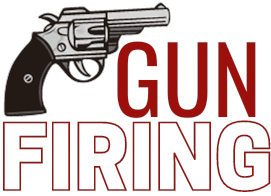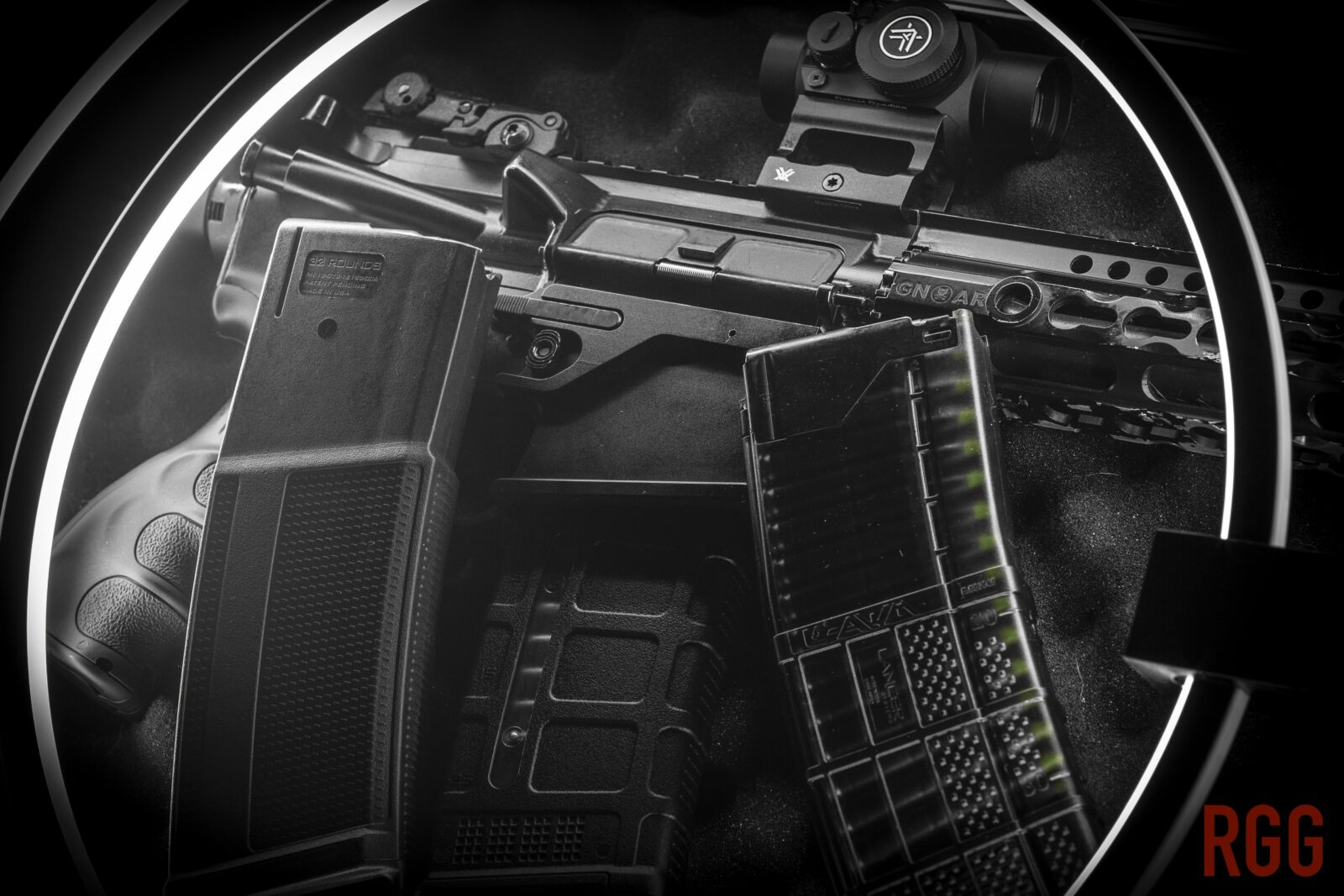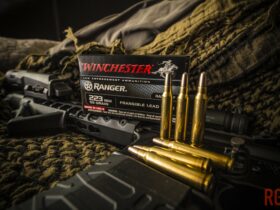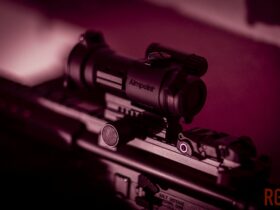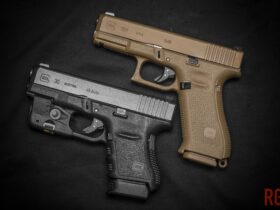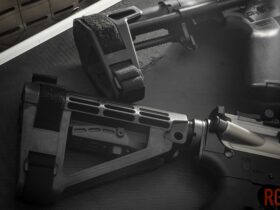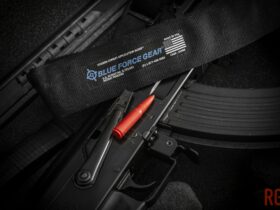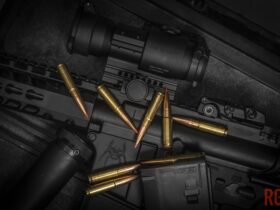You might be late to the game, and finally looking for your first gun. Or you realize you’re a little short on inventory and wish to round out the home arsenal a bit. Maybe you only have 9mm pistols and want to add a .45 ACP to the collection quickly. You scour the big outlets online and your local gun shops. They’re still bare because of riots, ‘rona, and this election I keep hearing things about. Or things move so fast that before you pull out the old AMEX Optima card, someone else has grabbed the gun you want. You’re a little dismayed, until you hear that it’s possible to buy a used gun…
What’s involved in buying a used gun, anyway?
Buying a used gun is pretty much like buying a used car. You are going to do the research, figure out if it’s even worth investigating further, research some more, try one out in real life, and maybe finally slap down cash or card for the purchase.
Basically, what you are looking to do is avoid buying someone else’s problem. Much like with cars, sometimes people dump problematic firearms at the nearest pawn shop or gun store that buys used guns. Typically, an operation on the up-and-up will check any used guns they are selling for glaringly-obvious defects and malfunctions, but you shouldn’t assume that the seller is doing their due diligence. Check your potential purpose as if your life depends on it, since in a very real sense, it does. You want this gun to work and go bang when you need it to go bang.
The biggest “no go” sign is that the price is too good to be true. If you see an H&K VP9 for $300 or a GLOCK 17 for around the same price, chances are there’s a problem with the weapon itself. Hard pass.
As far as brands, stick to used guns from the major manufacturers if this is to be a “working” gun for you, whether it’s a rifle, pistol, or shotgun. You may not get warranty service from them, but getting repairs is easier if it’s from a bigger name. Plus the extensive community support. Save the odd boutique brand for another time.
If the price seems right – here’s some things to check:
-
The exterior appearance of the gun. Look for rust, pitting, and cracks. A used gun will have some wear on the exterior, especially if it was a duty weapon or a carry gun. But signs of major rust and especially visible cracks on the exterior – hard pass. Think about the stress a gun has to handle – if there’s a crack in the slide, receiver, or barrel, it’s only going to get worse.
-
Check how clean the gun is. If it’s excessively filthy, it’s been neglected.
-
Check the screws, bushings, muzzle devices and other fittings on the weapon. For example, if you’re looking to buy a used AR-pattern rifle, and you torque the muzzle device with your hand and it moves and rotates, that’s very problematic. It’s not supposed to move. If a screw that holds in the handguard is falling out – that’s an even bigger problem.
-
Check the bore and chamber of the firearm itself. You want to see the wear on the barrel and chamber. If you see uneven wear, pitting, and rust, that’s a problem. Especially problematic is if the rifling in the barrel looks worn down – that’s the sign of a high-mileage gun right there. You might save $200 buying this gun, but you’ll spend at least that replacing the barrel. Don’t forget to ask permisson first if you are doing this in person.
-
Check the rest of the interior of the gun. Ask to disassemble the firearm, and check the wear surfaces, i.e. where metal comes into contact with another hard surface. For example, where the slide comes in contact with the frame and barrel on a pistol. On an AR-pattern rifle, you would check where the bolt carrier group rubs up against the upper receiver. Think about places where friction occurs.
-
Check the controls, trigger, and action. Things should require “authority” to manipulate, but not brute force. For example, the safety lever on an AR should require some pressure to manipulate, but you shouldn’t need to hamfist it. Or conversely it shouldn’t move just because a slight breeze hit it. The same goes for the action of the weapon. Too loose and something is wearing out. Too tight and that could be another sign of failure. Loading a magazine should be a low-effort activity.
-
Extras. Is the seller including magazines, a carrying case, maybe even ammo? Sometimes you can hit a nice litlle “kit” where the seller includes a few nice extras at a good price.
-
On all of the above, an honest seller should allow you to check this. If they don’t – walk away.
Now, all that is rather easy to do for an in-person sale at a pawn shop, gun shop, or if you are buying a gun in a private sale. If you’re paying for the gun online, it’s tricky, but you can check the weapon “remotely”. Run through this list, and ask the buyer to photograph and maybe even take video of the gun (safely) doing things. Again, an honest seller won’t mind.
Remember – research is your friend.
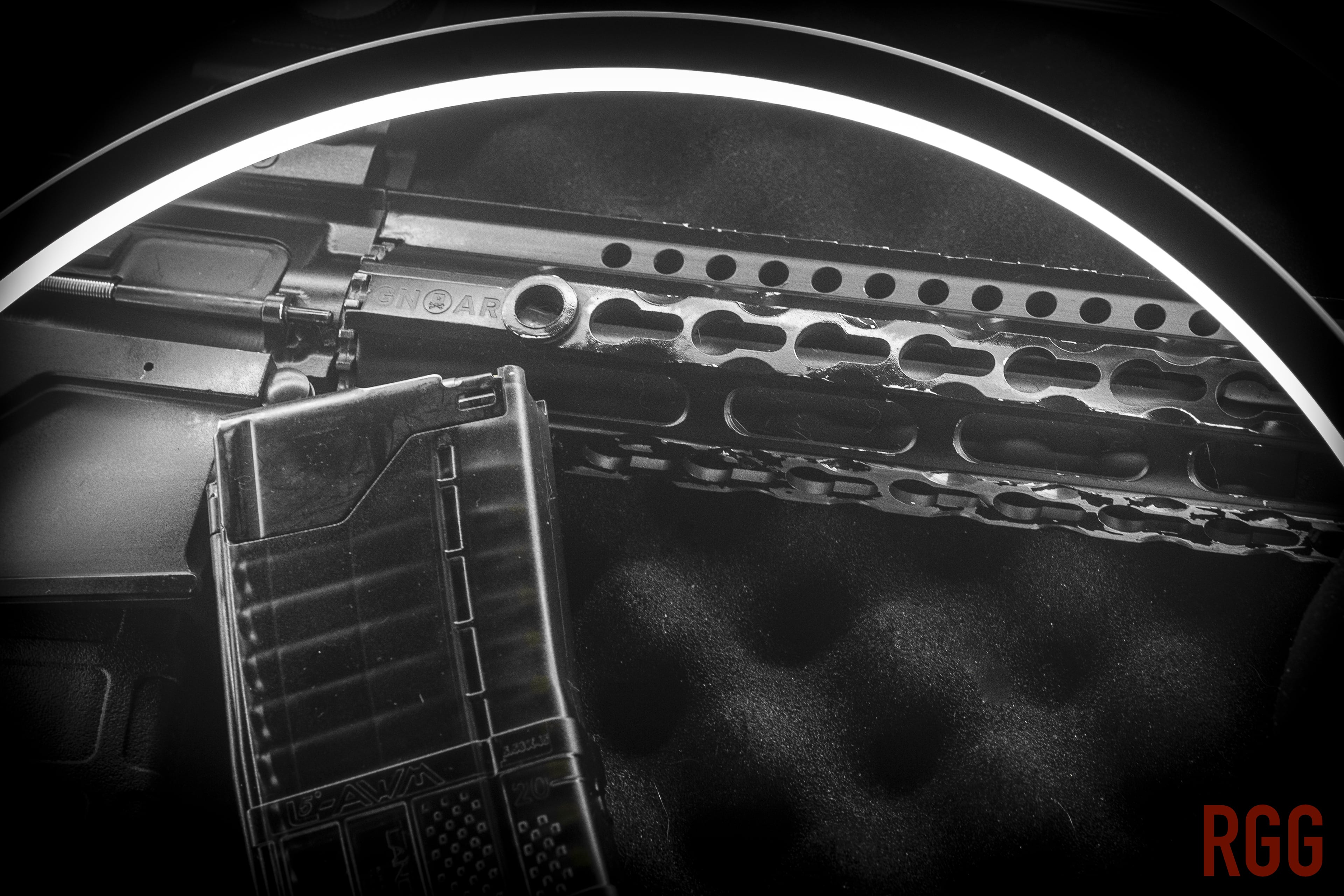
Yes, in this time in history, people are buying guns like crazy, and those that have them already are loath to part with them. But that doesn’t mean there isn’t an inventory of used firearms circulating out there. Some avid collectors see an opportunity to make a few extra bucks parting with a pistol or two – to them it doesn’t matter, they have 10 more. Some gun shops might cycle demo and rental pieces into the sales system to clear out for incoming inventory. And yes, there’s the sought-after law enforcement trade-ins.
But where do you purchase a used gun? There’s several options. Note: Legally your exact procedure may vary depending on state, but the general options tend to remain the same.
Your Local Gun Shops
The first place to start is your local gun shops. In the mad rush of today’s firearms frenzy, they will still usually have a small inventory of used firearms on hand, especially older ones. Remember, guns are durable goods, and a well-maintained weapon will run well for decades. There’s absolutely nothing wrong with getting a GLOCK 19 Gen 3. Usually a local gun shop will sometimes feature some samples from their used inventory on their social media. Check out their Instagram postings, or if they are really cool, their Parler posts.
The fringe benefit of scoping out their social media for deals is that you can get an idea of their reputation. If you see a lot of negative commentary, you might want to stay away – go elsewhere. If you see the management and employees interacting and having fun with the customers, it’s probably a safe bet that this is a good place to check out.
If the gun shop has an attached range, even better – while you may not be able to shoot the specific exact gun you are checking out, the shop may have a rental version of it available for a spin. Rental guns usually have quite a bit of use on them, so it’ll also give you an idea on how a used version of the gun you want handles.
Pawn Shops
A lot of pawn shops and pawn brokers are also licensed gun dealers, and often only have used guns in their firearms inventory. Bigger operations will have dedicated staff on hand who know a thing or two about guns. Or maybe the guy behind the counter knows a guy who can swing by…
Also, pawn shops tend to be a little more open to haggling and trades. You could bring in some old crap you have lying around the house and attain some store credit towards a used gun, for example.
Conversely the pawn shop may buy and sell guns, but not specialize in it – it’s not entirely unknown to find a ‘diamond in the rough’ at a pawn shop. However the attendant risk there is that since they don’t specialize in guns, they may not be able to answer that many questions about them. Tread lightly.
Gun Shows
Most gun-friendly locales will have their share of gun shows on a regular basis. Big or small, it’s a grand opportunity to at least see a lot of firearms in person, and handle a few. And also pick up some beef jerky. Most dealers at gun shops run brick-and-mortar operations on their own, so the inventory on display at the show is no different than if you visit their store. However, gun shows attract dealers from around the region, which increases the available inventory at a given moment.
Gun shows tend to be high-volume sort of places, and your options for examination are limited. The seller should allow you to inspect a used item, but don’t expect to be granted 30 minutes to go over that used GLOCK 21 with a fine-toothed comb.
However, the economics come into play with a gun show. You’ll have to spend money driving there, then spend money for admission, that sort of thing. The economics may not work out.
Websites
There’s plenty of options to purchase a firearm online and have it transferred to your local licensed gun shop for pickup. Big outlets will sometimes featured used or demo inventory on their websites, and of course there’s dedicated firearms buy/sell/trade sites like Armslist and Gunbroker.
With the big online retail outlets, a used item should contain a detailed description, and accompanying photographs, of the condition and functionality of the firearm. Wear and tear, it’s age, that sort of thing. Reputable dealers will also gladly answer any questions about the gun you are interested in.
Armslist and Gunbroker are a different animal entirely. Licensed gun dealers and individuals alike feature their wares on both sites. A licensed dealer will be able to ship the gun from their place of business to a gun shop close to you for the required federal background check. Individuals can sell guns on Armslist and Gunbroker as well, but they are usually limited to selling their guns to people in the same state as they are.
For example:
-
Hank Hill Guns LLC in Texas has a used H&K VP9 in stock, and features it on Gunbroker. You are in Florida, and want that VP9. After some back and forth, you settle on a price with Hank Hill Guns LLC, and they then ship the gun to a local gun shop near you in Florida, where you undergo the federally-required background check, and take your gun home. In reality this can kill your savings since the seller will charge shipping, and the receiving gun shop will assess a transfer fee.
-
Henry Hill of Davie, Florida is selling a used GLOCK 19 and features it on Gunbroker. Henry is an individual and not engaged in the commerce of firearms. He just wants to sell this one gun. He posts it on Armslist, but since he’s not a licensed gun dealer, he can only sell in-state. You are in Miami Gardens, Florida. You pay for the gun on Gunbroker, and then go meet Henry somewhere to pick up the gun. More on that in a minute. Also note that some states have the dreaded universal background check law, and you may have to conduct the transaction at a licensed gun dealer. Check your local laws first.
A Quick Word On Police Trade-Ins
Sometimes through any number of outlets, you’ll see guns labeled “Police Trade In” for sale. It’s exactly what it sounds like – you have the chance to purchase a used firearm that once belonged to a law enforcement agency. Now, the guns themselves are usually nothing special. A GLOCK 17 from a law enforcement agency is usually nothing different than one you can buy at retail. You might get lucky and there’s a custom engraving of the agency logo somewhere on the gun, but beyond that it’s just another gun. There’s a few exceptions, since some departments require heavier triggers than standard, but by and large, an LE-issued pistol or semi-automatic rifle is pretty much the same as one you can get.
Usage can vary widely, but unless the officers who it was issued to were serious about their training, the gun itself may have very low mileage on it. Police weapons aren’t fired that often. You might get a 10-year old GLOCK 22 that has less than 1500 rounds through it.
Just like any other used gun though, check for signs of wear and neglect.
Truth be told, through retail outlets, the savings on a used gun may not be much after you factor in sales tax, transfer fees, and the like. The real deals are usually found in person-to-person transfers, but those carry attendant legal and sometimes physical risks. There’s a few ways you can mitigate your legal, financial, and physical risks when doing a private transfer of a firearm.
-
Do the final transaction in a public place. Believe it or not, a recommended location would be adjacent to the nearest police station. Be wary of the laws concerining the public display of weapons though. Check first before doing this. A safer bet is at a gun range. You can check the gun freely, and maybe even run a magazine or two through it before purchasing. Ask the staff if they have a place where you can conduct the examination and/or sale. Just rolling up to the parking lot and swinging guns around might get you some odd looks, at the least.
-
Ask for a bill of sale and/or a receipt. Usually most people transacting firearms privately will want to document the sale to cover themselves. Since we cannot access the federal or state-level background check systems, we have to operate on the assumption that both parties are not prohibited persons. Someone who is on the up-and-up shouldn’t hesitate to document the sale. Be prepared to show ID and have it scanned/photographed.
-
If your state requires a background check for all gun sales, you are legally obligated to go to a licensed gun dealer to complete a private sale. Check your local laws before proceeding.
-
NFA items such as suppressors, machine guns, and short-barreled shotguns/rifles have to be transferred via a licensed gun dealer who is also able to legally sell these items. The process to transfer an NFA item is very time-consuming. Unfortunately you can’t legally buy a suppressor off of some random on the internet directly.
-
Most of all, trust your instincts. If the deal seems shady, walk away. Another one will come up soon.
With research, purchasing a used gun shouldn’t be a major production. With careful research and knowledge, you can walk into the deal ready to negotiate, and walk out with a real winner, even in these strange days.
Operating Regular Guy Guns and bringing you quality content costs money, money that I am more than happy to spend. I’m not really sponsored yet, so I have to pay for pretty much everything. However, I’m only able to do so much at a certain pace.
You’ll see the articles peppered with affiliate links. I get a few pennies when you make your purchases via my links.
With that in mind I’m offering a whole spectrum of specialty t-shirts, stickers, and daily wear accesories with my own brand of low-key humor. Be a Second Amendment Radical In Style! You’ll also notice affiliate links throughout the articles on this site. Go ahead and click on them and make your purchases. A few pennies and forints go to yours truly.
Click here to accessorize your life.
Subscribe To The Regular Guy Podcast
Now available on Apple Podcasts!
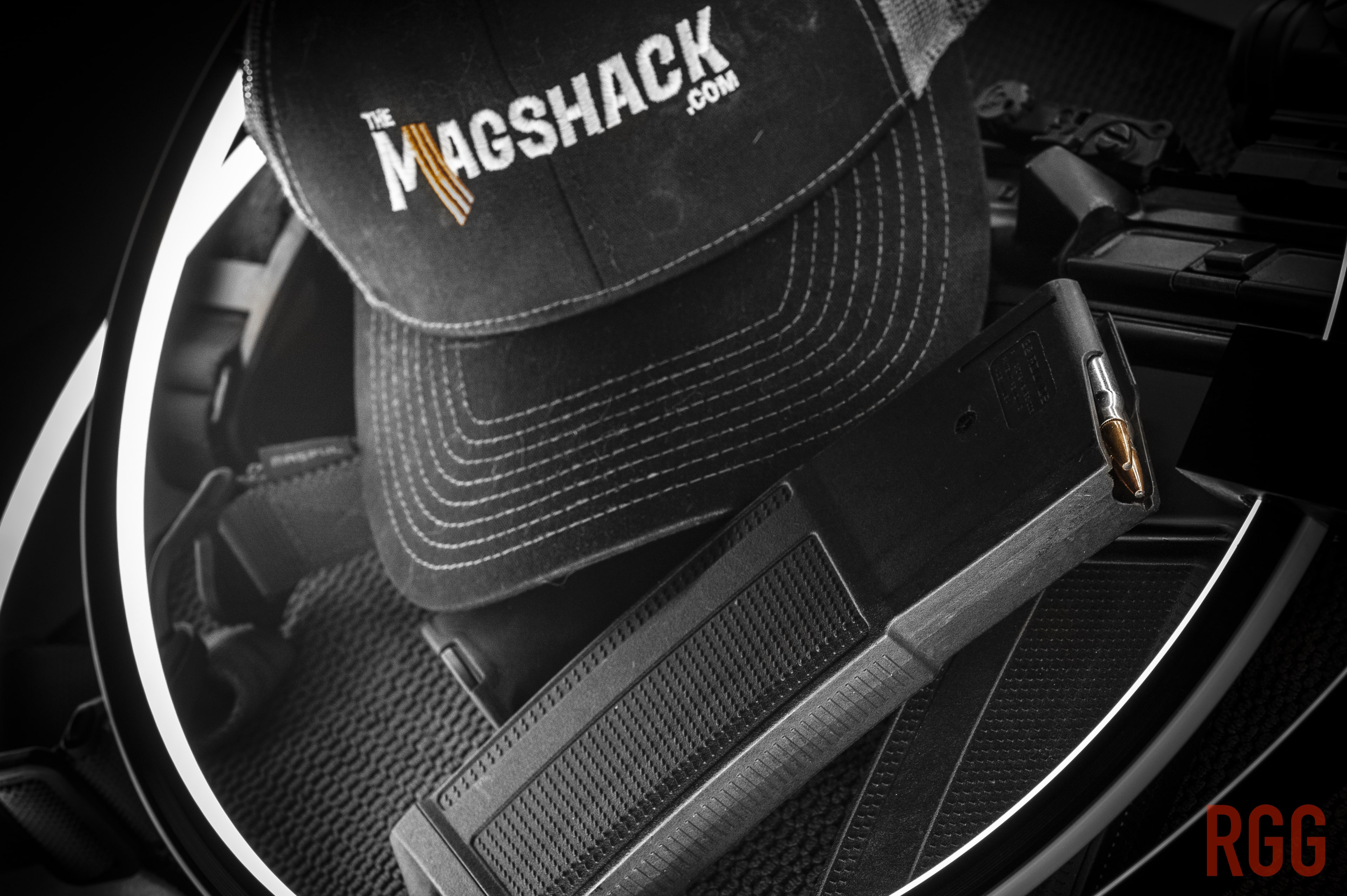
Source link: https://regularguyguns.com/2020/10/12/Buying-A-Used-Gun/ by Regular Guy at regularguyguns.com
